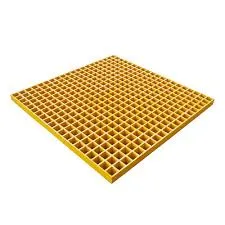
-
 Afrikaans
Afrikaans -
 Albanian
Albanian -
 Amharic
Amharic -
 Arabic
Arabic -
 Armenian
Armenian -
 Azerbaijani
Azerbaijani -
 Basque
Basque -
 Belarusian
Belarusian -
 Bengali
Bengali -
 Bosnian
Bosnian -
 Bulgarian
Bulgarian -
 Catalan
Catalan -
 Cebuano
Cebuano -
 China
China -
 China (Taiwan)
China (Taiwan) -
 Corsican
Corsican -
 Croatian
Croatian -
 Czech
Czech -
 Danish
Danish -
 Dutch
Dutch -
 English
English -
 Esperanto
Esperanto -
 Estonian
Estonian -
 Finnish
Finnish -
 French
French -
 Frisian
Frisian -
 Galician
Galician -
 Georgian
Georgian -
 German
German -
 Greek
Greek -
 Gujarati
Gujarati -
 Haitian Creole
Haitian Creole -
 hausa
hausa -
 hawaiian
hawaiian -
 Hebrew
Hebrew -
 Hindi
Hindi -
 Miao
Miao -
 Hungarian
Hungarian -
 Icelandic
Icelandic -
 igbo
igbo -
 Indonesian
Indonesian -
 irish
irish -
 Italian
Italian -
 Japanese
Japanese -
 Javanese
Javanese -
 Kannada
Kannada -
 kazakh
kazakh -
 Khmer
Khmer -
 Rwandese
Rwandese -
 Korean
Korean -
 Kurdish
Kurdish -
 Kyrgyz
Kyrgyz -
 Lao
Lao -
 Latin
Latin -
 Latvian
Latvian -
 Lithuanian
Lithuanian -
 Luxembourgish
Luxembourgish -
 Macedonian
Macedonian -
 Malgashi
Malgashi -
 Malay
Malay -
 Malayalam
Malayalam -
 Maltese
Maltese -
 Maori
Maori -
 Marathi
Marathi -
 Mongolian
Mongolian -
 Myanmar
Myanmar -
 Nepali
Nepali -
 Norwegian
Norwegian -
 Norwegian
Norwegian -
 Occitan
Occitan -
 Pashto
Pashto -
 Persian
Persian -
 Polish
Polish -
 Portuguese
Portuguese -
 Punjabi
Punjabi -
 Romanian
Romanian -
 Russian
Russian -
 Samoan
Samoan -
 Scottish Gaelic
Scottish Gaelic -
 Serbian
Serbian -
 Sesotho
Sesotho -
 Shona
Shona -
 Sindhi
Sindhi -
 Sinhala
Sinhala -
 Slovak
Slovak -
 Slovenian
Slovenian -
 Somali
Somali -
 Spanish
Spanish -
 Sundanese
Sundanese -
 Swahili
Swahili -
 Swedish
Swedish -
 Tagalog
Tagalog -
 Tajik
Tajik -
 Tamil
Tamil -
 Tatar
Tatar -
 Telugu
Telugu -
 Thai
Thai -
 Turkish
Turkish -
 Turkmen
Turkmen -
 Ukrainian
Ukrainian -
 Urdu
Urdu -
 Uighur
Uighur -
 Uzbek
Uzbek -
 Vietnamese
Vietnamese -
 Welsh
Welsh -
 Bantu
Bantu -
 Yiddish
Yiddish -
 Yoruba
Yoruba -
 Zulu
Zulu
Exploring the Benefits and Applications of FRP Weirs in Water Management Systems
Understanding FRP Weirs An Overview
Fiber-Reinforced Polymer (FRP) weirs have emerged as a pivotal solution in modern hydraulic engineering and water management systems. These structures, designed to measure the flow of water in open channels and to control water levels, provide a unique combination of strength, lightweight properties, and resistance to environmental degradation. In this article, we will delve into what FRP weirs are, their advantages, applications, and considerations for their implementation in various water management scenarios.
What is an FRP Weir?
A weir is a barrier across an open channel or river that alters the flow characteristics of the water. When integrated into hydraulic structures, FRP materials—composed of a polymer matrix reinforced with fibers (typically glass, carbon, or aramid)—offer enhanced durability and resistance to corrosion when compared to traditional materials like concrete or steel. This corrosion resistance makes FRP weirs particularly advantageous in environments where chemical exposure or saline conditions are prevalent.
Key Advantages of FRP Weirs
1. Lightweight Construction One of the most significant benefits of FRP weirs is their lightweight nature, which simplifies the transportation and installation process. This characteristic is particularly valuable in remote or difficult-to-access locations where heavy machinery may not be available.
2. Corrosion Resistance FRP materials are inherently resistant to a variety of environmental conditions, including moisture, chemicals, and even UV rays. This makes FRP weirs an ideal choice for wastewater treatment facilities, agricultural applications, and coastal regions.
3. Design Flexibility The versatility of FRP allows for custom designs tailored to specific project requirements. Engineers can create weirs in various shapes and sizes, accommodating unique site conditions and operational needs.
4. Long Service Life With their resistance to environmental degradation, FRP weirs tend to have a longer lifespan compared to traditional materials. This durability translates into reduced maintenance costs and fewer replacements over time.
Applications of FRP Weirs
FRP weirs find utility across a variety of applications
frp weir

- Hydrological Studies In water management, accurate flow measurement is crucial. FRP weirs provide reliable data for hydrological studies and resource management.
- Irrigation Systems Farmers employ FRP weirs to control water flow in irrigation systems, optimizing water usage and improving crop yields.
- Wastewater Treatment Their durability makes FRP weirs particularly effective in managing effluent flow and controlling levels within treatment ponds, ensuring compliance with environmental regulations.
- Flood Control FRP weirs can play a critical role in flood management strategies by controlling water levels in rivers and channels, thus mitigating the risk of overflow and flooding.
Considerations for Implementation
Despite their many benefits, several factors should be considered when implementing FRP weirs
- Cost While the initial investment in FRP materials may be higher than traditional materials, the long-term savings on maintenance and replacement costs often justify the expense.
- Engineering Expertise Designing and installing FRP weirs requires specialized knowledge to ensure structural integrity and effectiveness. Collaboration with experienced engineers is essential for successful implementation.
- Environmental Impact While FRP materials are durable, consideration must be given to their production and disposal. Sourcing sustainable materials and adopting environmentally responsible practices can enhance the overall sustainability of the project.
Conclusion
FRP weirs represent a significant advancement in hydraulic engineering, offering a lightweight, durable, and corrosion-resistant solution to manage water flow effectively. Their unique properties make them suitable for a wide range of applications, from agricultural irrigation to flood control and wastewater treatment. As we continue to tackle the challenges posed by climate change and population growth, the incorporation of FRP weirs into water management strategies will undoubtedly play a crucial role in ensuring sustainable and resilient infrastructure.









